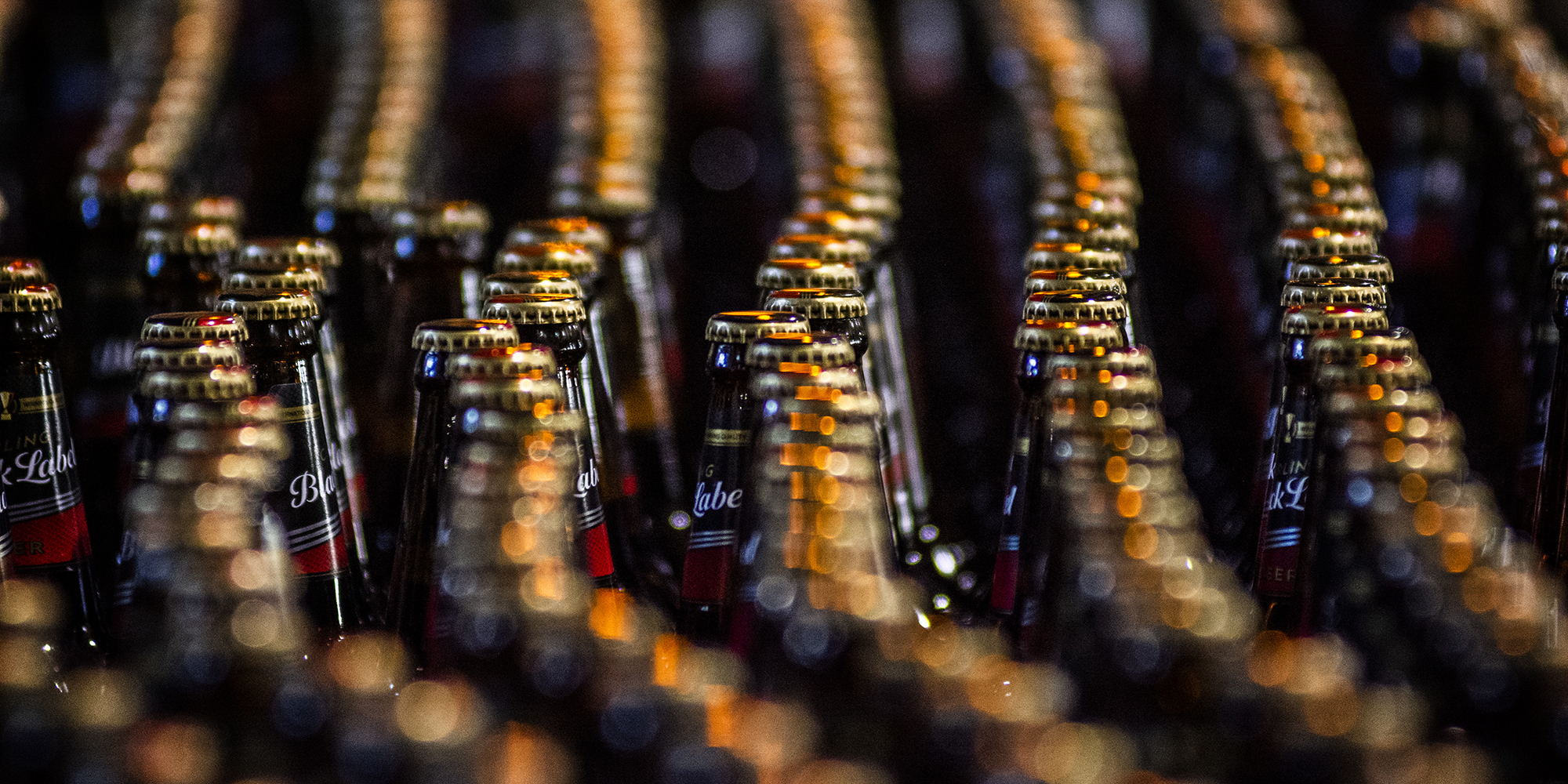The government’s third ban on alcohol sales to help contain a resurgence in Covid-19 infections is facing the first legal challenge from the brewer of iconic brands such as Castle Lager and Carling Black Label.
SAB, a division of AB Inbev, the world’s largest brewer, has approached the Western Cape High Court to challenge the constitutionality of the decision by the government to reinstate a ban on the sale of alcohol.
“SAB believes that any ban, including the current one, goes far beyond what is reasonable and necessary to contain the spread of the [Covid-19] virus and unlawfully restricts various rights that are enshrined and protected by our Constitution. These include the right to freedom of trade, the right to human dignity, privacy, and the right to bodily and psychological integrity.
“This legal action is the last resort available to SAB in order to protect our employees, suppliers, customers, consumers, and all the livelihoods we support,” SAB said in a statement.
The third ban on alcohol sales was implemented nationwide by President Cyril Ramaphosa on 29 December 2020 because Covid-19 case numbers have been accelerating after the emergence of a new strain. The prohibition is designed, in part, to limit alcohol-related demand for trauma beds in hospitals that are needed for Covid-19 patients. The prohibition is set to be reviewed on 15 January.
The move by SAB adds a new twist to the government’s efforts to defend its lockdown rules. The government will also duke it out in court with the Fair Trade Independent Tobacco Association (Fita) as the former has appealed against a judgment declaring the prohibition of tobacco sales unconstitutional. Fita, which represents smaller manufacturers in the tobacco and cigarette manufacturing sector in southern Africa, said the appeal by the government signals that another ban on the sale of tobacco products is potentially on the cards.
The government has faced at least 118 legal challenges to lockdown regulations, some of which are still pending while many others have been settled. Two that did end in a formal court decision were cases brought by tobacco producers, with Fita losing its case in June in the Pretoria High Court, but British American Tobacco and other parties won their case in the Western Cape High Court against the lockdown regulations. Both cases are being appealed against by the losers.
Back to alcohol
SA first banned the sale of alcohol in March 2020 when it imposed one of the world’s strictest Covid-19 lockdowns until June. Ramaphosa announced another ban in July to ease the burden on hospitals from drinking-related incidents.
SAB said the first two bans cost the alcohol industry 165,000 jobs across the entire value chain. The company also warned that the third ban might have a similar impact on the labour market and economy.
“We have seen small and large businesses severely impacted, billions of rands lost in taxes, the entrenchment of illicit trading, and the looting of alcohol stores. Restricting the legal trade of alcohol fuels the growth of the illicit market, a fact that is widely acknowledged internationally. The illicit market is outside the regulatory reach of government, leading to devastating consequences from a health and economic perspective.”
SAB has accused the government of ignoring its submissions on 28 December about alternatives to imposing an outright ban. These alternatives include restricting the day and hours when alcohol can be sold by retail outlets.
“SAB firmly believes that the above proposed limitations coupled with an earlier curfew, would have been reasonable and effective in supporting the healthcare system and would help to mitigate transmission of the virus while still preserving livelihoods and keeping the economy open.”
Other players in SA’s R140-billion alcohol industry have also spoken out against the latest prohibition. The Liquor Traders Formation, which represents tavern owners, has asked the government to lift the ban from 16 January and allow off-site sales of alcohol “to protect the 250,000 jobs in the industry”.
“One million jobs across the full alcohol value chain are at risk and the taverns support township based jobs that anchor households and ensure that more than 250,000 families have meals on their tables daily. The current lockdown means over 250,000 families do not know where their next meal is going to come from or how they will have means to prepare for their back-to-school needs,” it said. DM/BM
Business Maverick
SAB drags government to court over third prohibition of alcohol sales





